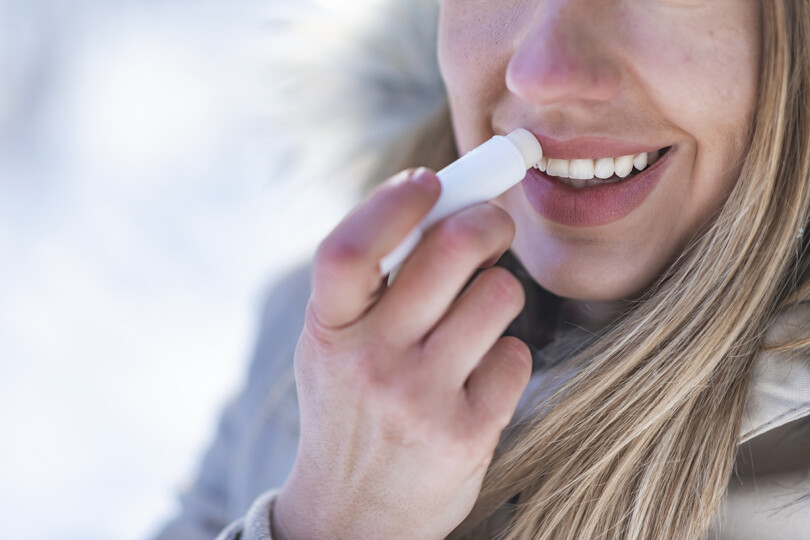The prime of winter is upon us, and so is the worst of all winter woes: dry, chapped skin. Although we’re slathering ourselves with myriad creams and lotions, we find ourselves literally itching for better solutions (because… eczema). But according to medical and cosmetic dermatologist Dr. Sonya Abdulla, the best solution is simply finding the right moisturizer specific to your skin conditions, especially during the winter. We asked Abdulla, of Dermatology on Bloor in Toronto, to reveal the truths behind some of the most common winter skin myths to help you calm and relieve your stressed skin.
MYTH: You don’t need to change your skincare routine as the weather gets colder
Truth: Updating your skincare routine during the winter is super important, as the colder months expose you to more irritants, such as dry air, sharp winds and even indoor heating, all of which stress and dry out skin.
“The winter months slow the natural exfoliation of the skin,” says Abdulla. To protect itself, your skin tries to retain its outer layer, which in turn can lead to a build-up of dull surface layers. “This means [you need to] step up your skin care routine to respond to the needs of dry and dehydrated skin.”
MYTH: All moisturizers are created equally
Truth: Moisturizers fall into three main categories:
Humectants: Draw moisture from the environment and into the skin. They help rehydrate the skin’s surface.
Emollients: Smooth out the skin’s surface by filling in cracks between skin cells.
Occlusives: Form a film on the skin to trap moisture from escaping into the environment.
According to Abdulla, you should be using face moisturizers that contain humectant and emollient ingredients, such as ceramides and hyaluronic acid.
Myth: Thicker and heavier moisturizers work better to help prevent dryness
Truth: Thicker, heavier moisturizers tend to contain more occlusive agents like oil and petrolatum. And while they rapidly restore the skin’s barrier function, they’re designed to treat thicker skin areas of the skin — such as hands, feet, elbows and knees. For the rest of the body, look for moisturizers that contain shea butter and glycerin. As for the face: spot treat cracked, dry patches overnight and avoid using thick creams to treat the entire face.
“Thick, heavy moisturizers are not always necessary for the face,” says Abdulla. “Patients with acne-prone skin should exercise caution here [as] too many occlusive ingredients can trigger more acne.”
Myth: You don’t need a moisturizer if you have oily skin
Truth: No matter your skin type, it’s important to use moisturizers to keep skin healthy and hydrated.
“Oily skin tends to do better with water-based lotions or gels since these are less occlusive. [If you have oily skin], avoid ingredients like vitamin E and squalene, which tend to induce sebum production,” says Abdulla.
Myth: Stay away from harsh exfoliators during the winter months.
Truth: “Exfoliation in the winter months still has a role but moderation is key. The skin is more sensitive in the winter months due to the elements.”
In other words, limit the use of exfoliators to once or twice a week. This means toners, too. Replace toners with micellar water, which help remove surface impurities and maintain the skin’s barrier function and hydration.
Myth: Hot baths and showers are your friend in the winter.
Truth: “Water is the most common irritant to the skin — over washing can strip the skin of its natural lipid bilayer, [leading to] further irritation and dryness. Heat is also a culprit, whether it is hot water, heat from a sauna or a steam room. Try to limit these exposures and follow-up with a coat of moisturizer to prevent dryness and irritation,” Abdulla explains.
But with that said, your skin is actually at its most absorbent state when it’s wet. It’s important to use a moisturizer and body cream/lotion immediately after a shower while skin is still damp to lock in moisture.
Myth: You don’t need to wear sunscreen in the winter.
Truth: Whether it’s infused into your foundation or daily moisturizer, it’s important to take similar precautions during the winter months and include an SPF in your skincare routine.
“An effective broad-spectrum sunscreen is beneficial year-round. UVA is present year-round and penetrates both windows and cloud cover, contributing to aging and skin cancer development.”












